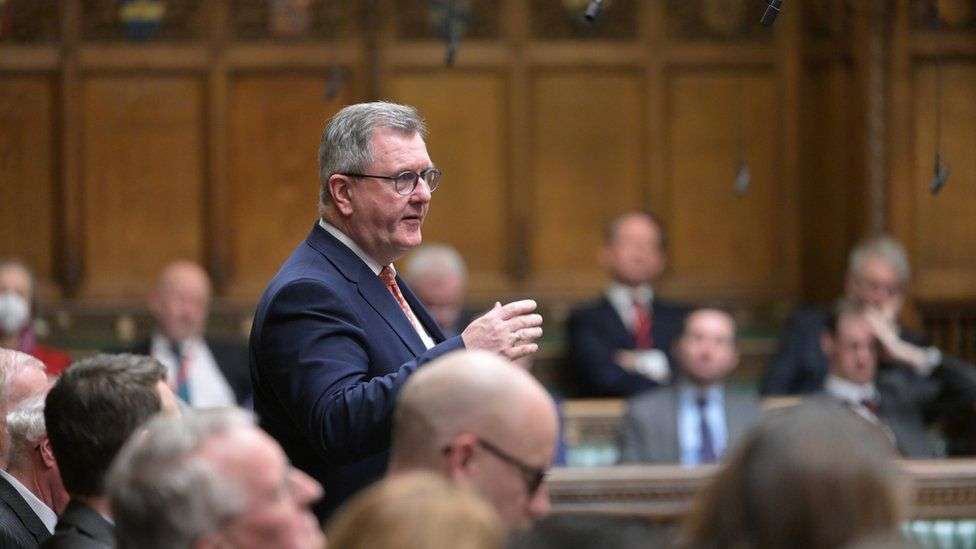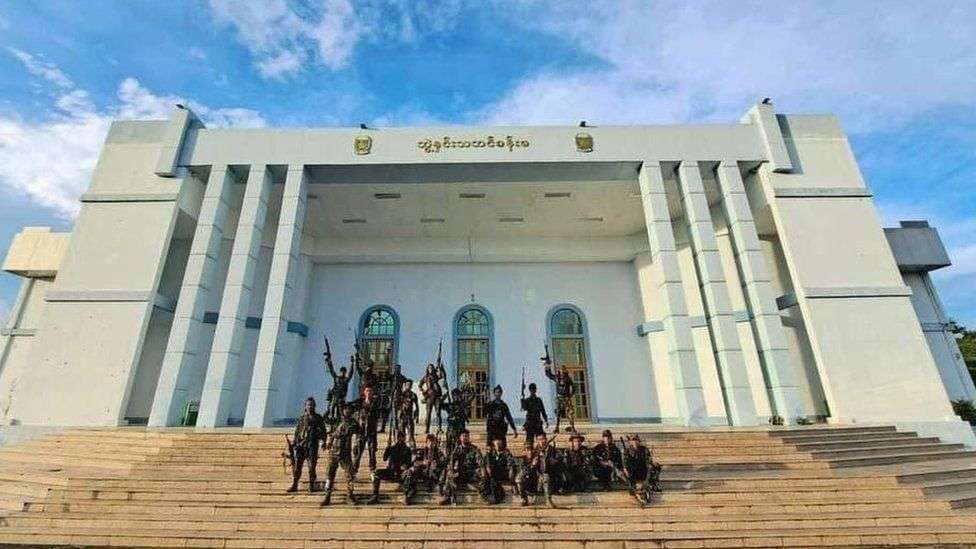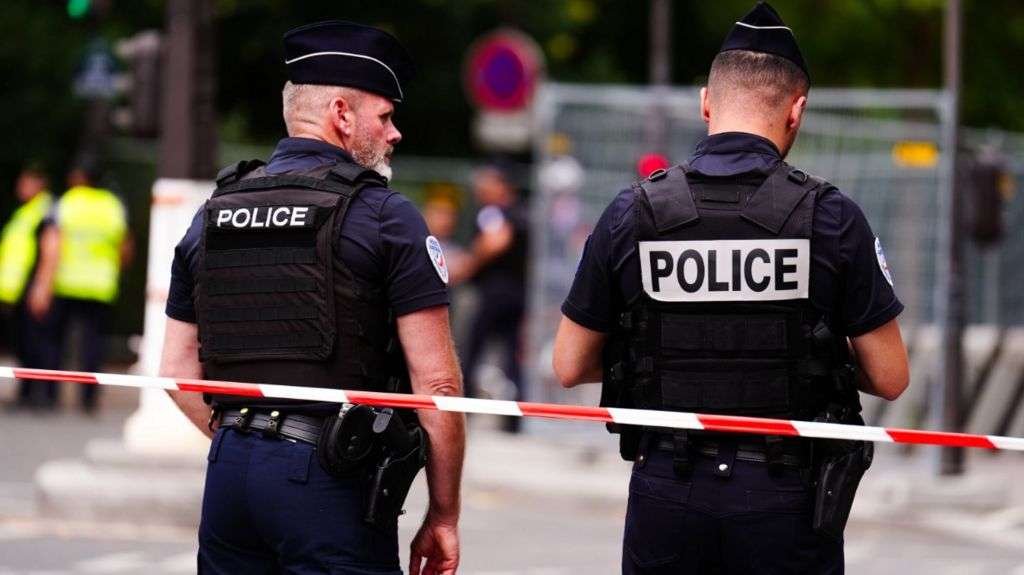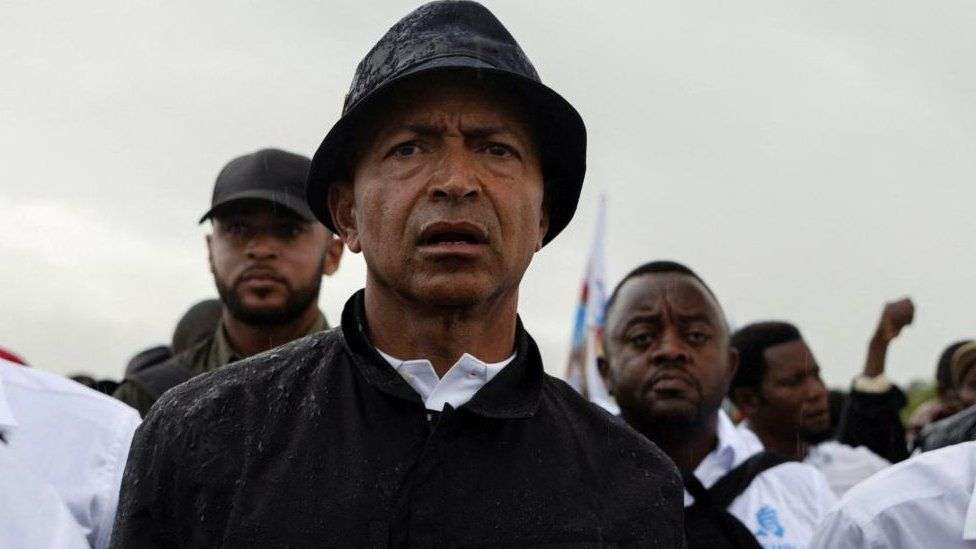Legislation to implement a deal aimed at restoring power-sharing in Northern Ireland will be debated by MPs later.
The plan, published on Wednesday, will mean no routine checks on goods crossing from Great Britain to Northern Ireland.
DUP leader Sir Jeffrey Donaldson, who negotiated it with the government, said that his party will return to Stormont if the legislation passes.
The DUP's boycott was in protest of the trade arrangements after Brexit.
It had demanded changes to the way goods are traded between Northern Ireland and Great Britain in order for it to end its Stormont standoff.
On Monday night, the DUP's 120-strong executive agreed to endorse the deal.
What's in the deal?
It will reduce checks and paperwork on goods moving from the rest of the UK into Northern Ireland.
It means there would no longer be "routine" checks on Great Britain goods which are sent to Northern Ireland with the intention of staying there.
Those changes involve the maximum flexibility allowed under a previous EU/UK deal it is understood will be acceptable to the EU.
On Tuesday, the UK and EU Joint Committee reached an agreement to make changes to that deal to allow Northern Ireland to benefit from UK Free Trade Agreements.
The UK Government will also pass two pieces of legislation to guarantee Northern Ireland goods can be sold in Great Britain in all circumstances and to affirm Northern Ireland's place in the UK.
What happens on Thursday?
MPs in the Commons will debate the legislation - known as Statutory Instruments - with the option of a vote, though it may not end up going to a formal division.
It is anticipated that the two bits of legislation will be signed off by MPs in the Commons in a matter of hours.
On Wednesday, Sir Jeffrey repeatedly defended the deal, saying it delivers for the people of Northern Ireland but acknowledged that some in his party and wider unionism have issues with it.
But he described it as a "trust issue - not in me but in whether the government will deliver what they have committed to do".
"I believe we have built in sufficient safeguards which allow them to deliver what is being offered."
Criticism from within the party
After the deal was published, Sammy Wilson - the MP for East Antrim - was critical of the government describing it as "spineless and weak-kneed", and that EU laws will still be imposed which politicians at Stormont have no say over.
Another DUP MP, Paul Girvan, said the government was trying to "bounce" a timetable by fast-tracking the legislation through Parliament on Thursday.
However, at a joint press conference with the DUP leader, Northern Ireland Secretary Chris Heaton-Harris said the proposals represented the "right deal" for Northern Ireland and the focus was now on delivering it "swiftly".
The DUP has said it will re-enter power-sharing at Stormont subject to the delivery of the legislation at Westminster, which appears on track to happen very quickly.
When exactly could power-sharing return?
There is an expectation that, if things go according to plan, MLAs could be called to a sitting of the assembly this weekend, with some politicians saying they expect this to happen on Saturday.
The first order of business for members (MLAs) when they enter the assembly chamber will be to elect a new Speaker - this must happen before anything else.
Once the Speaker is elected, the parties entitled to jointly lead the executive - the body that makes decisions and policy in Northern Ireland - will make their nominations.
For the first time Sinn Féin will nominate a first minister because it won the most seats in the assembly election in May 2022.
The DUP, as the largest unionist party, will nominate a deputy first minister for the first time.
Although the first and deputy first ministers are joint offices and both hold equal power, Michelle O'Neill becoming the first-ever republican first minister of Northern Ireland will mark a symbolic moment.








